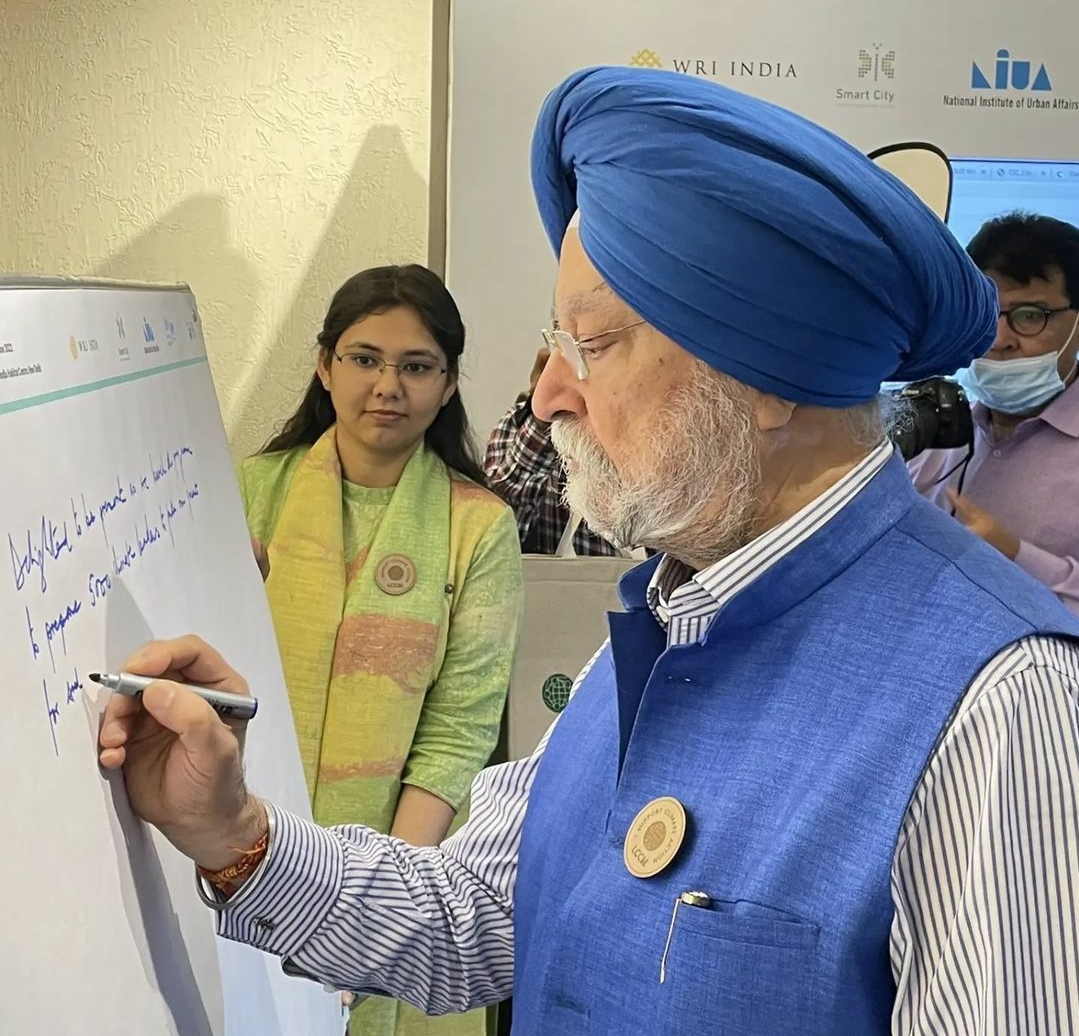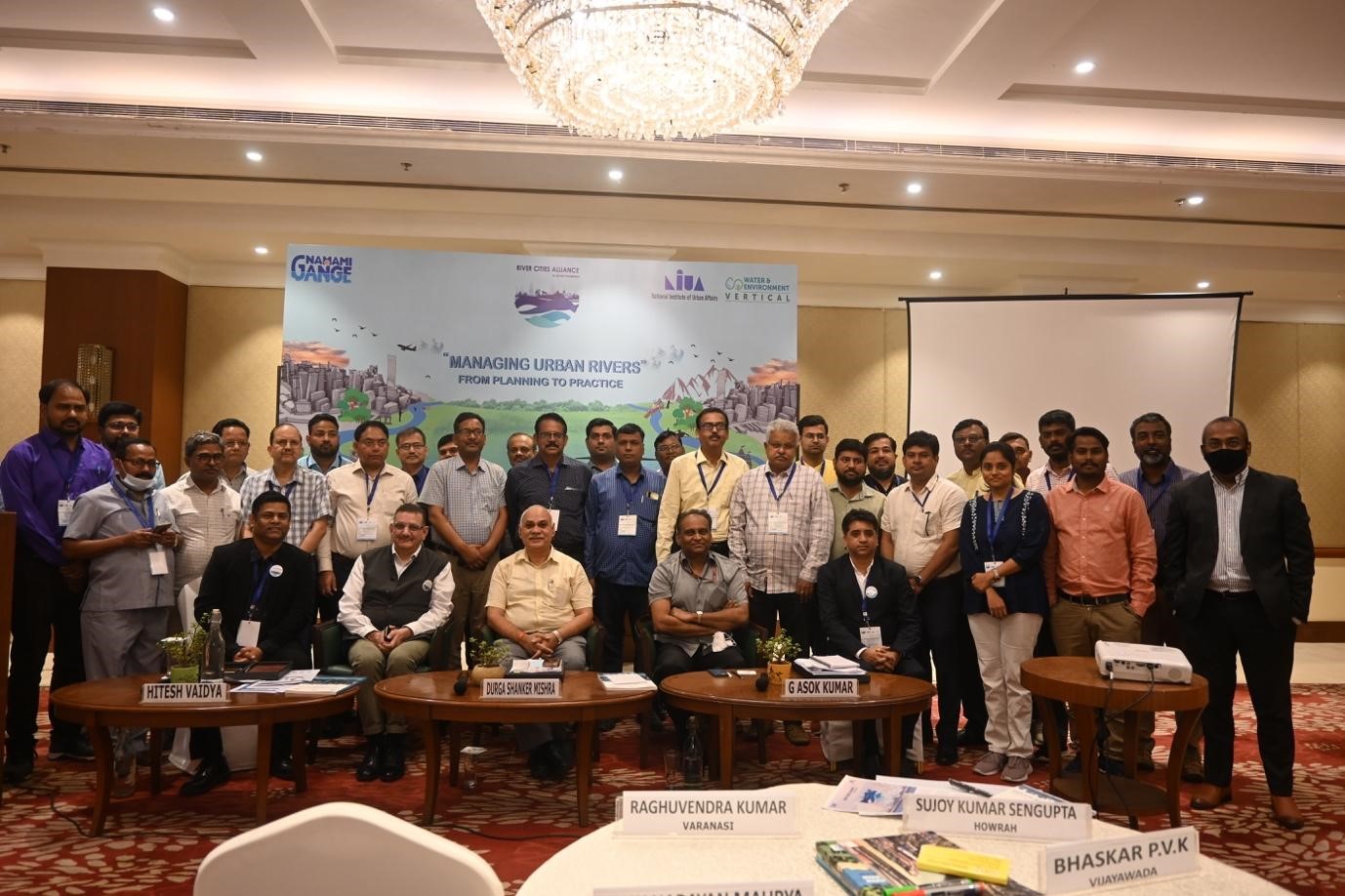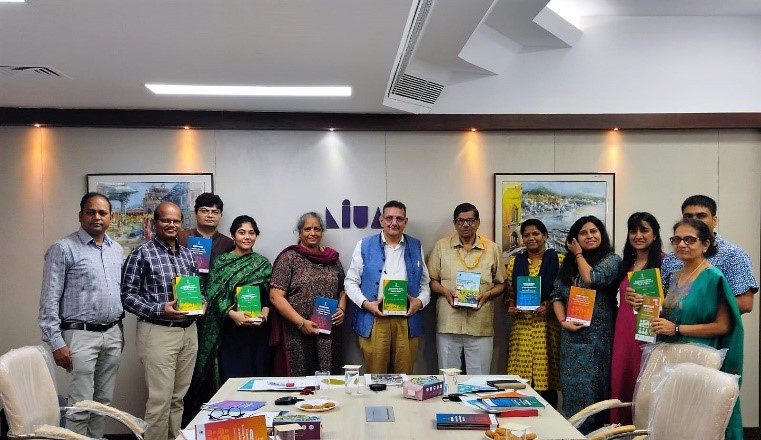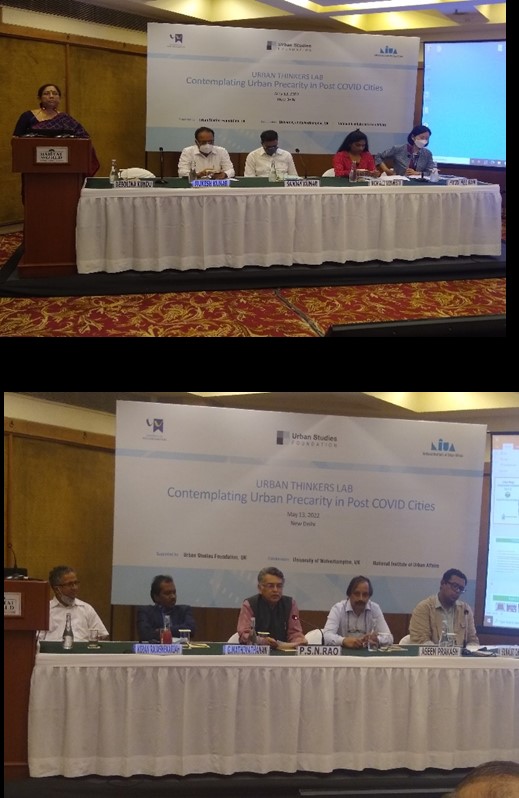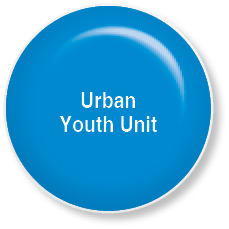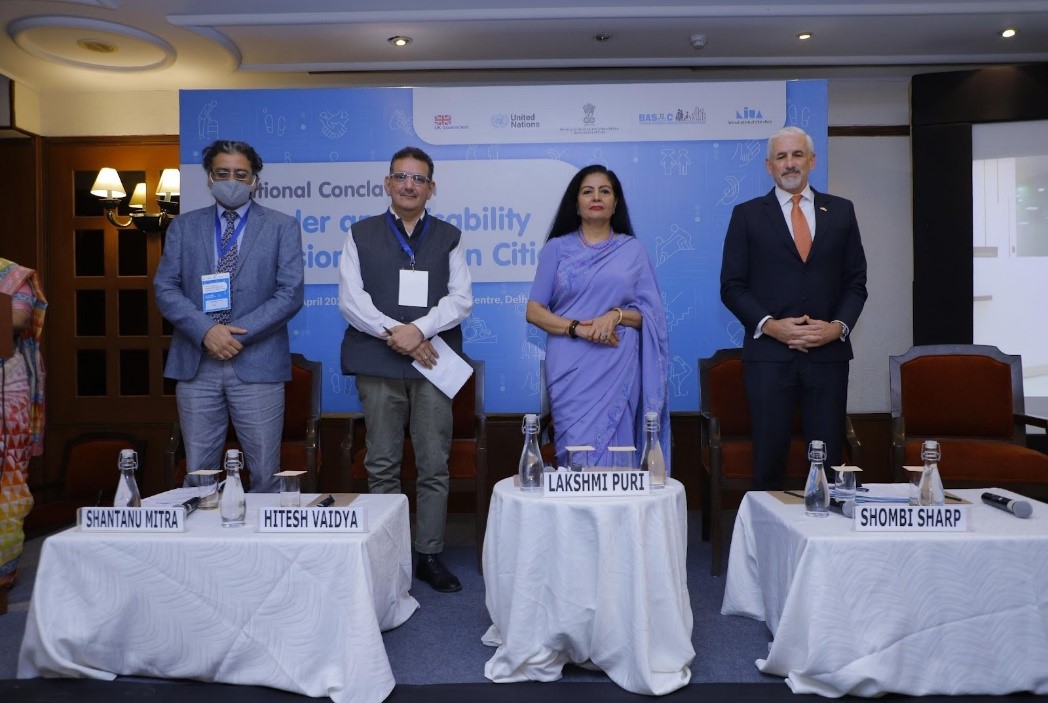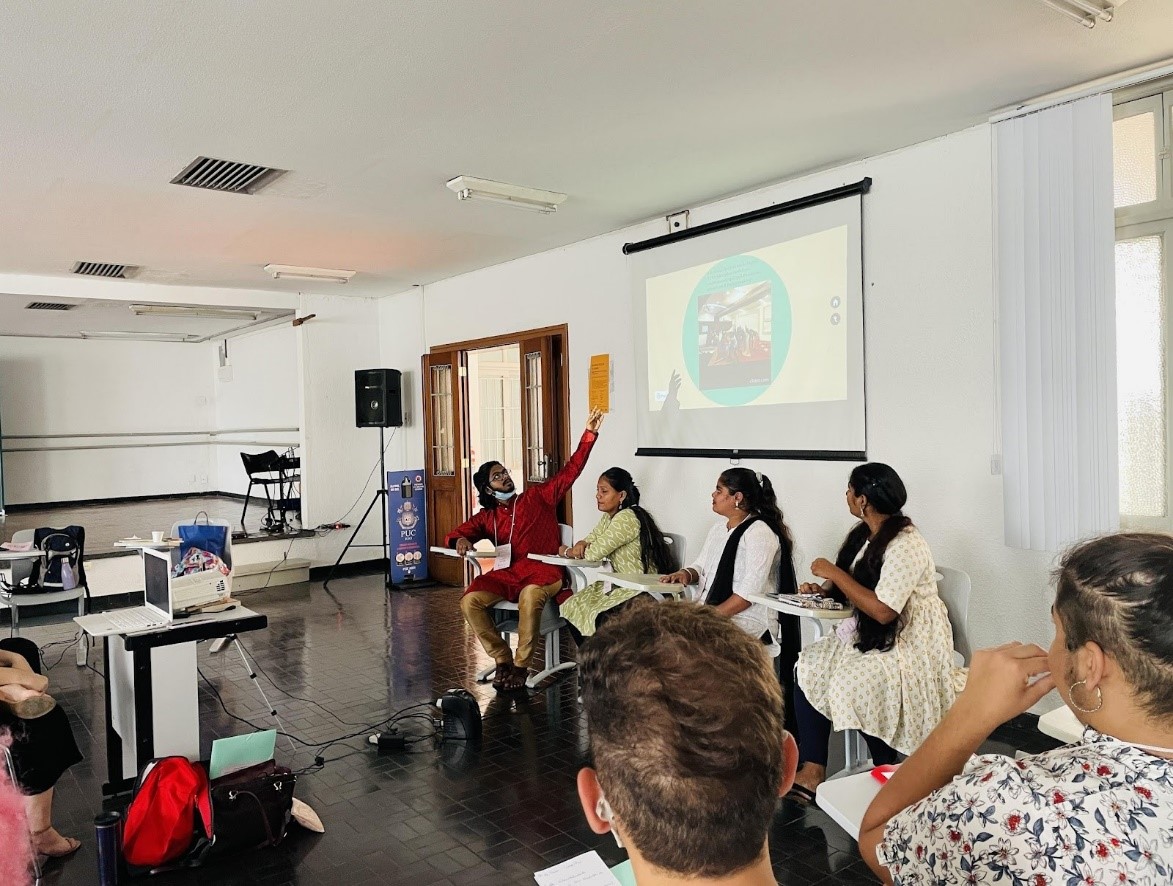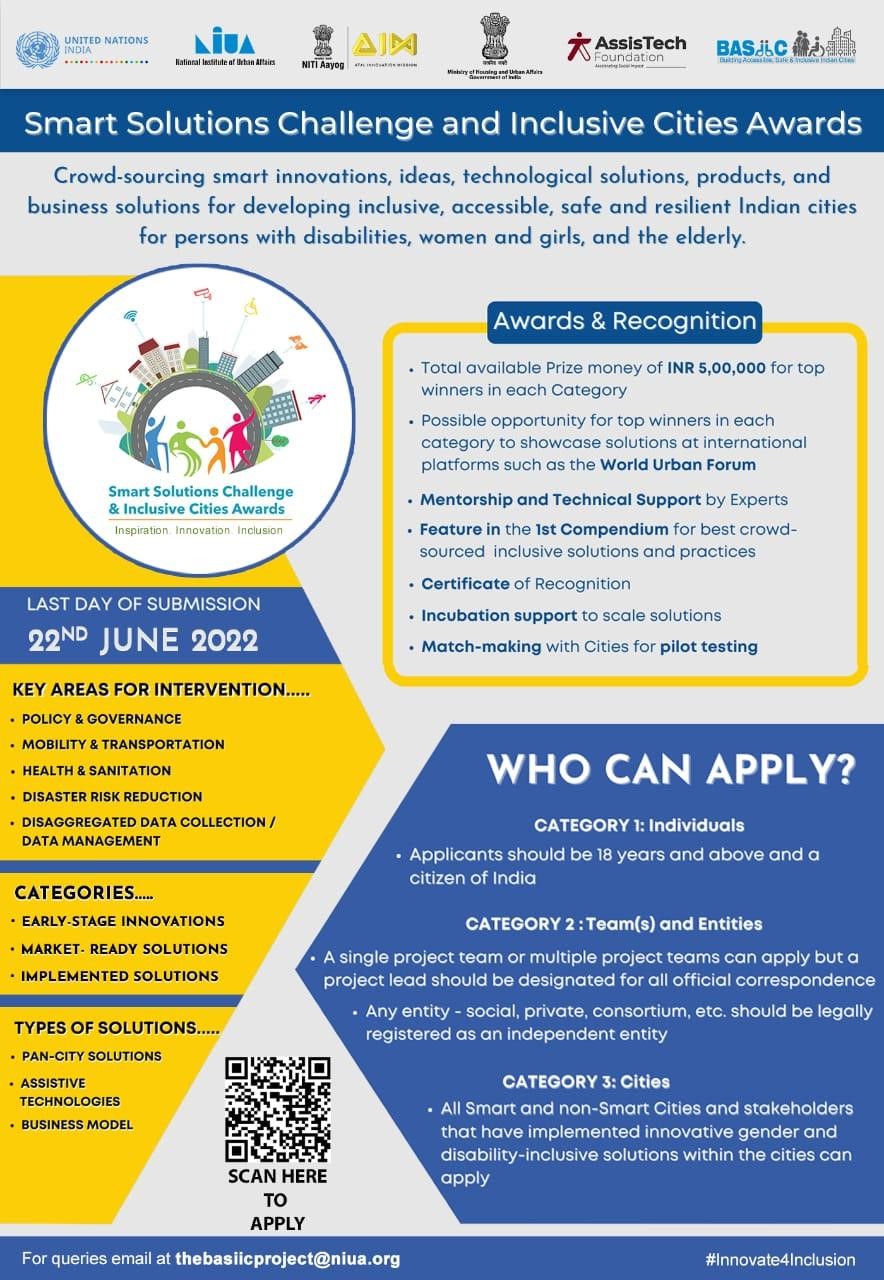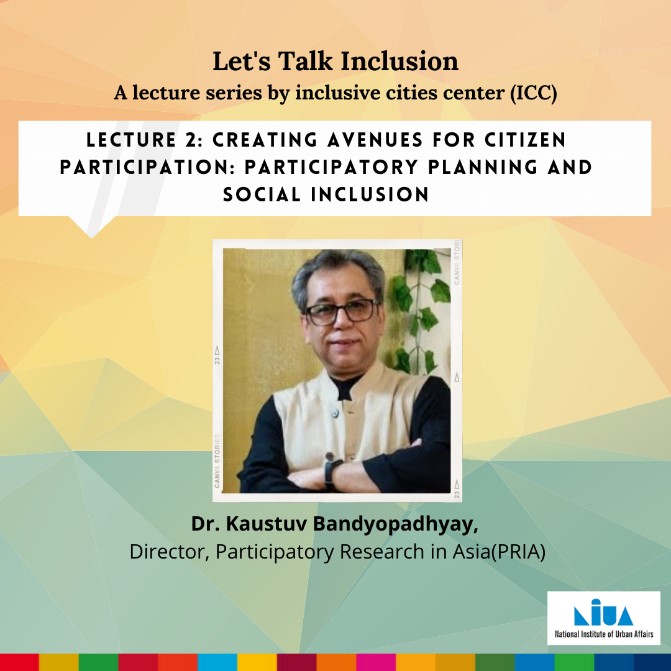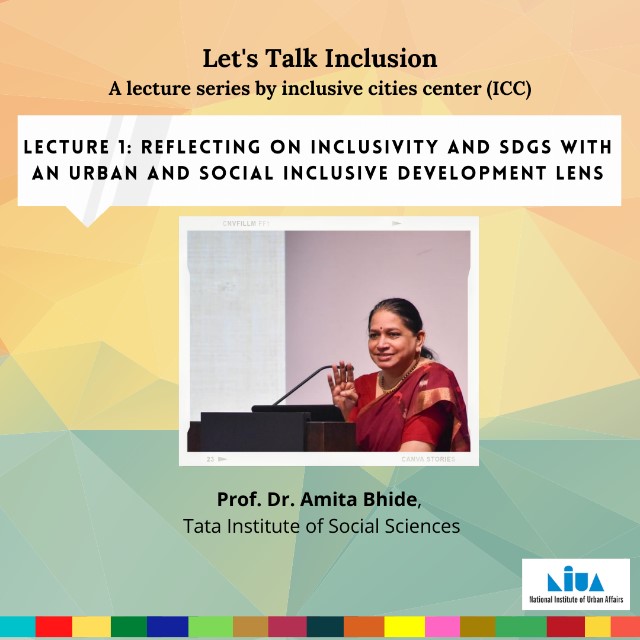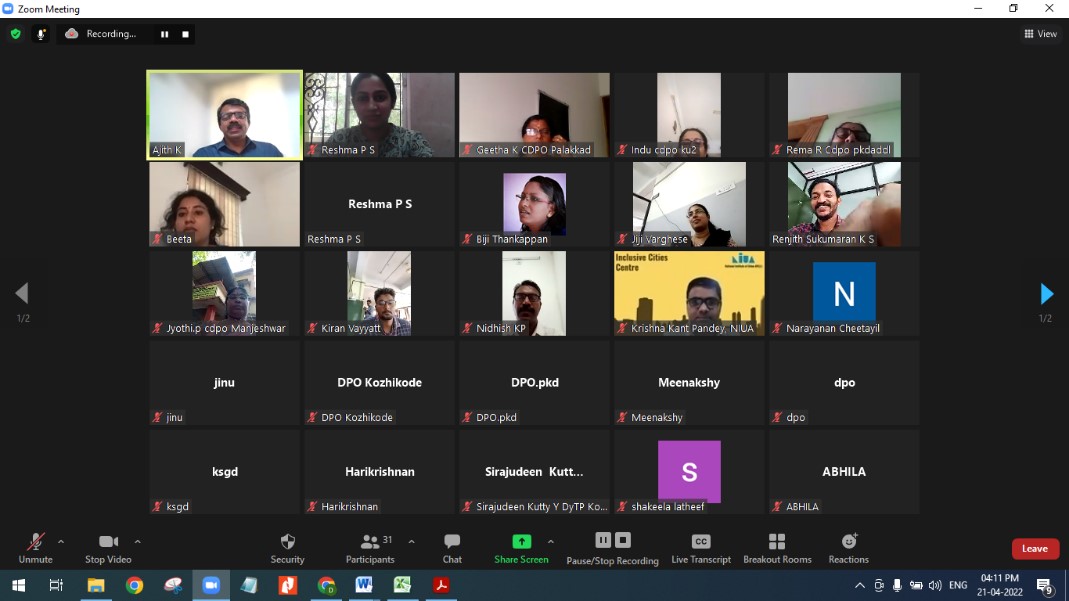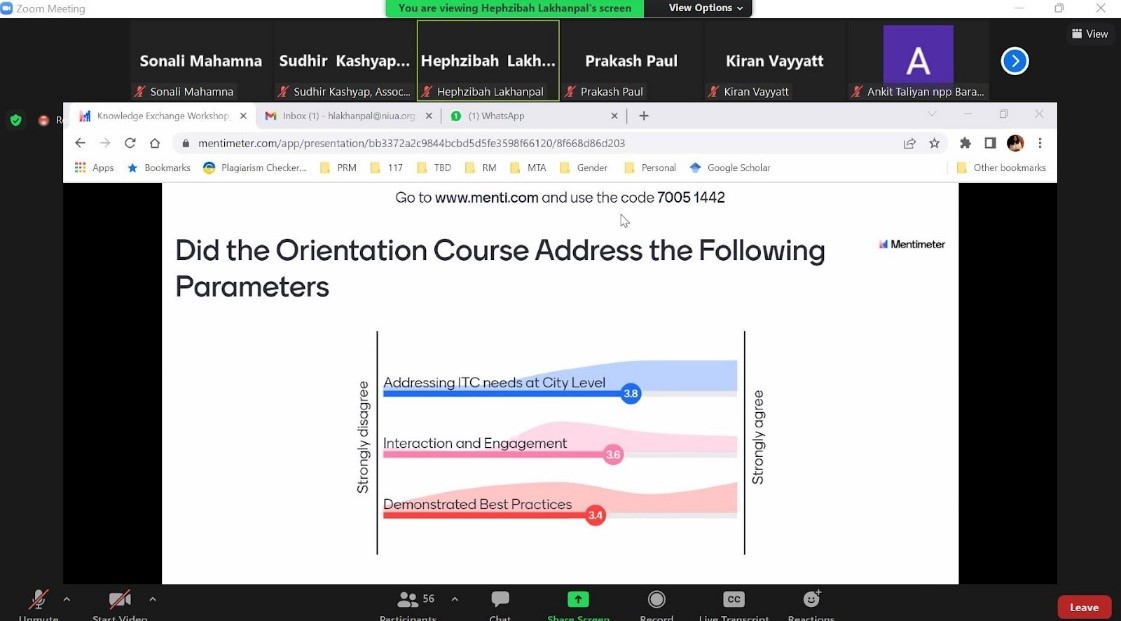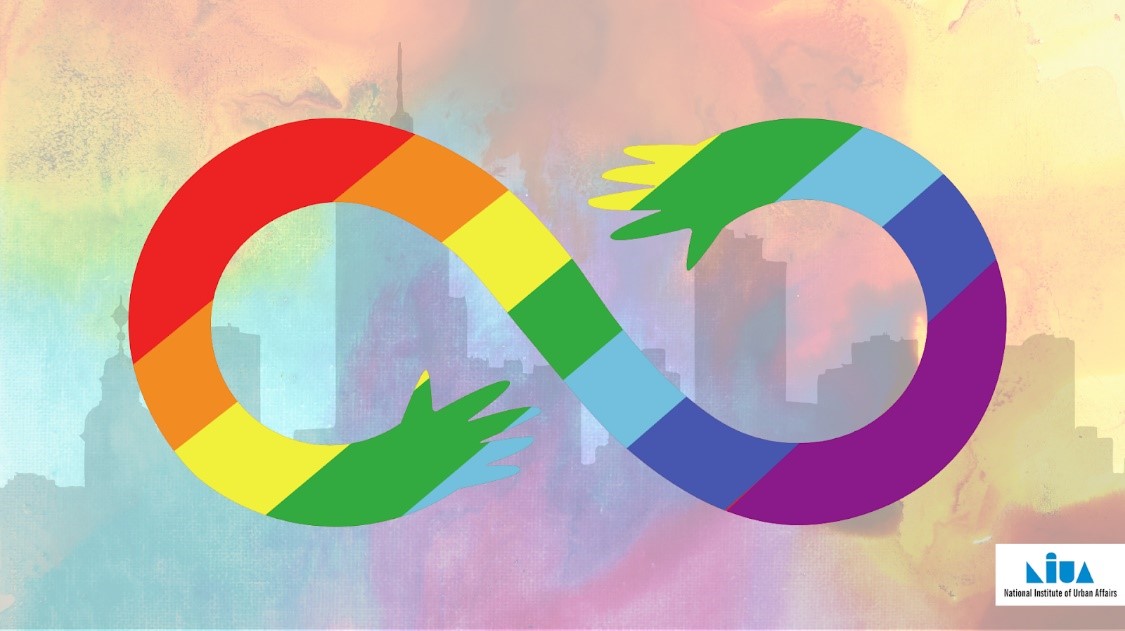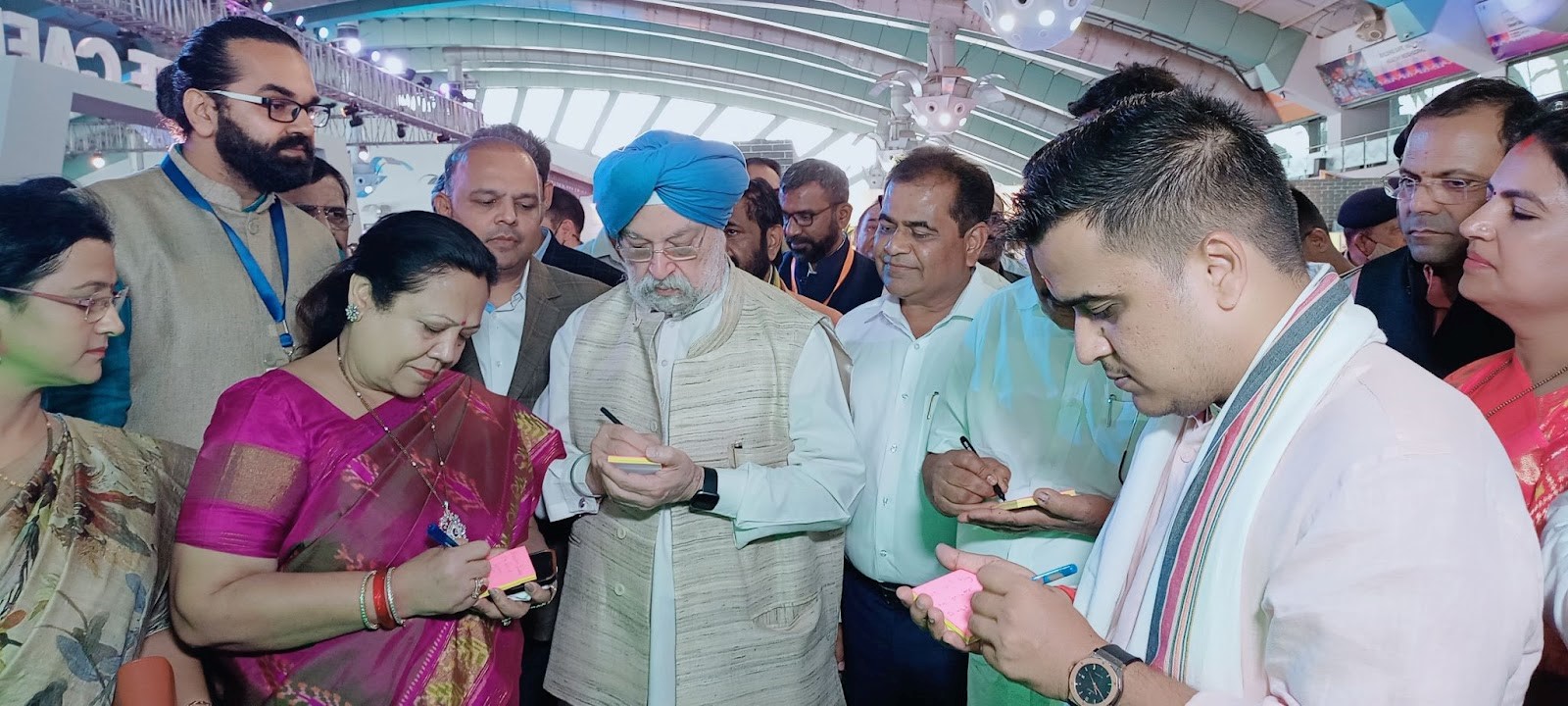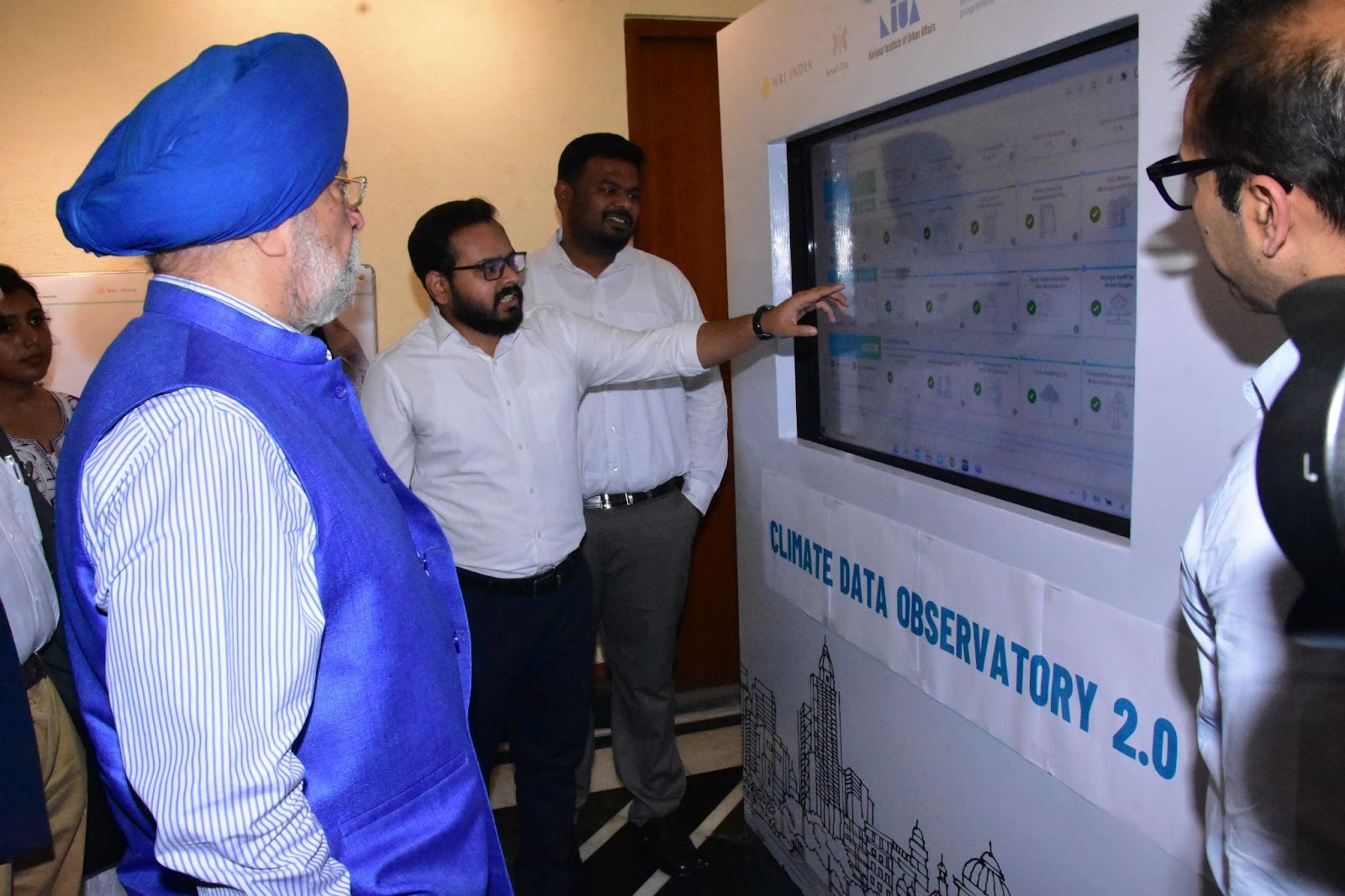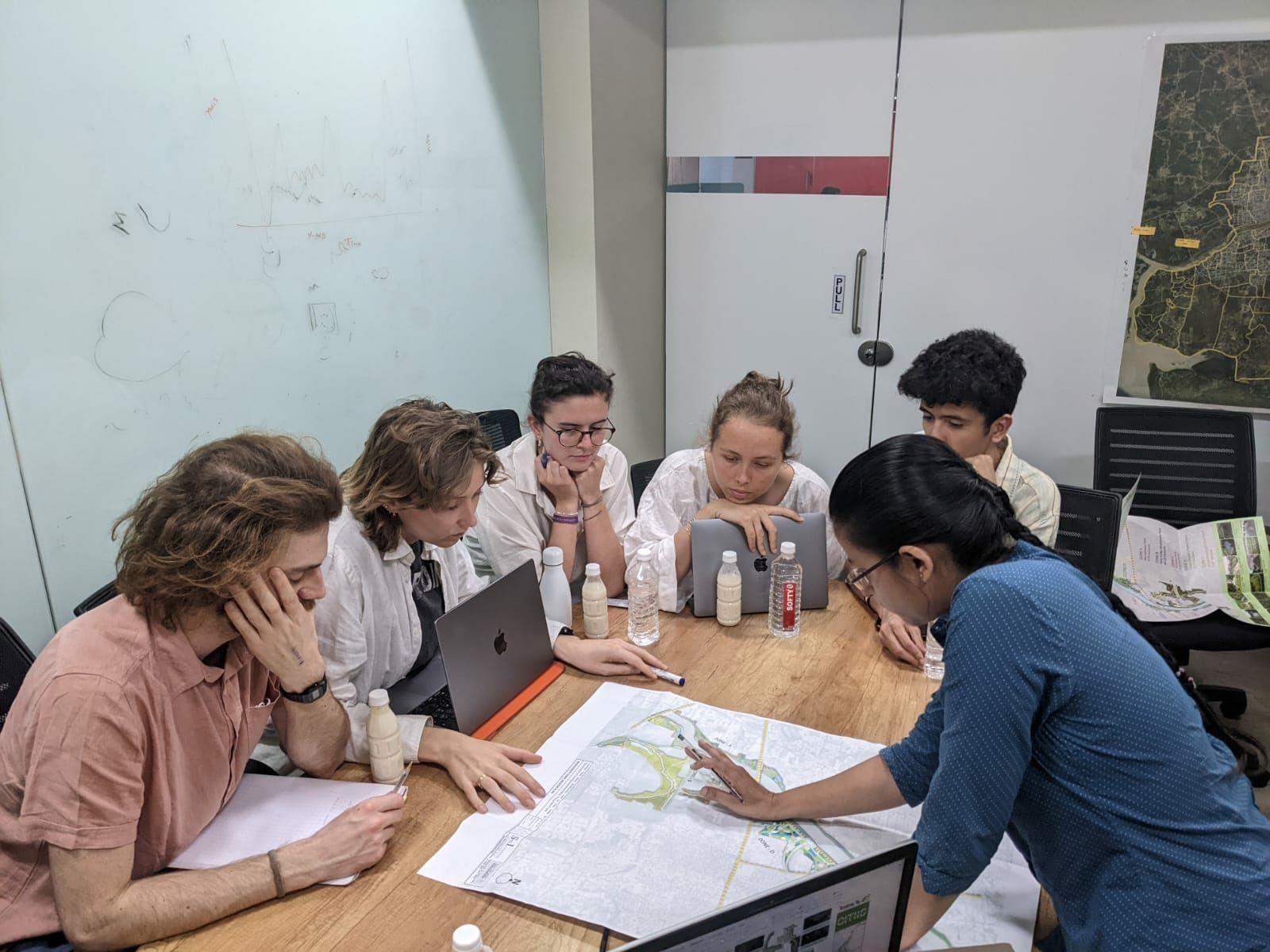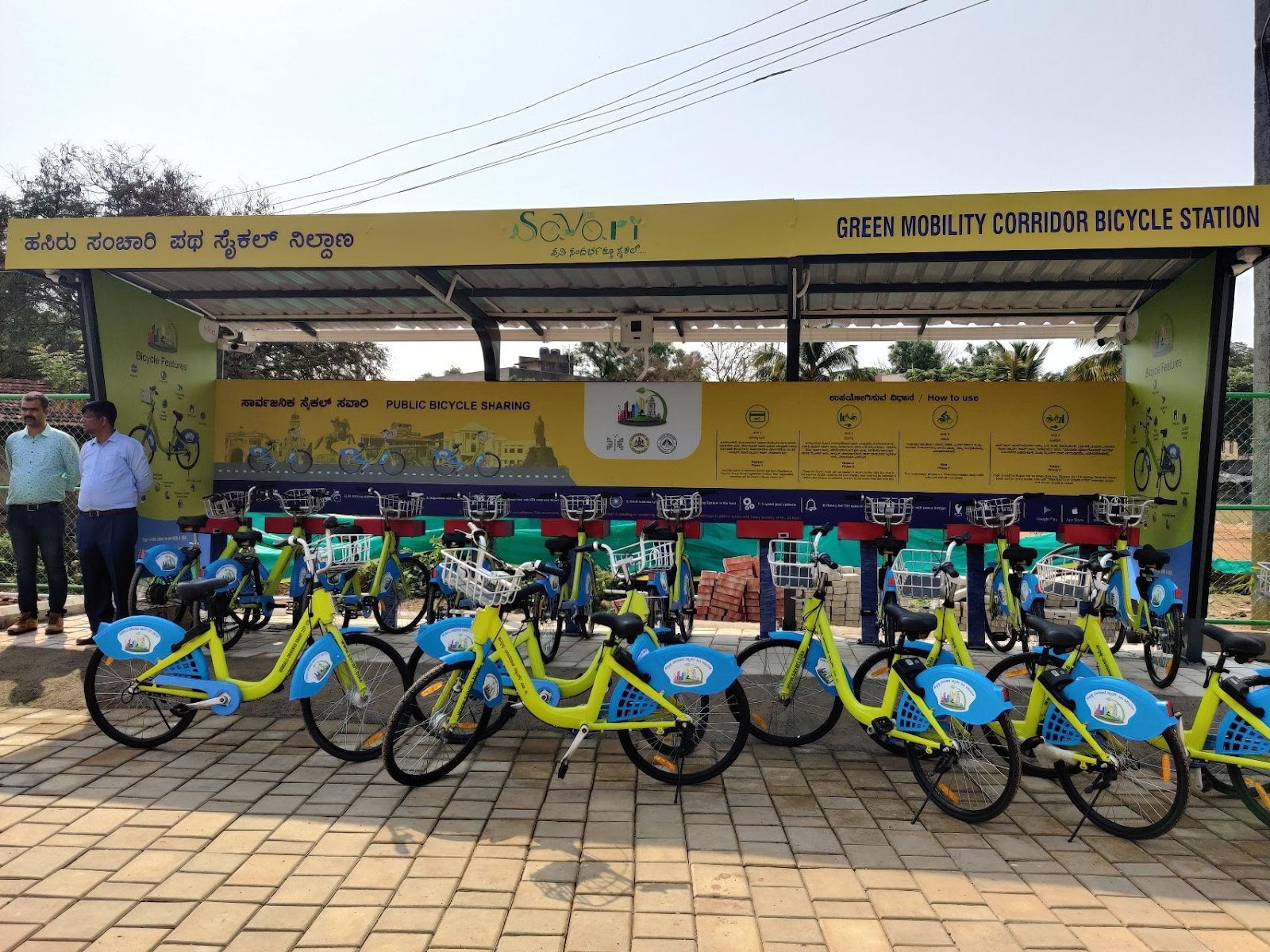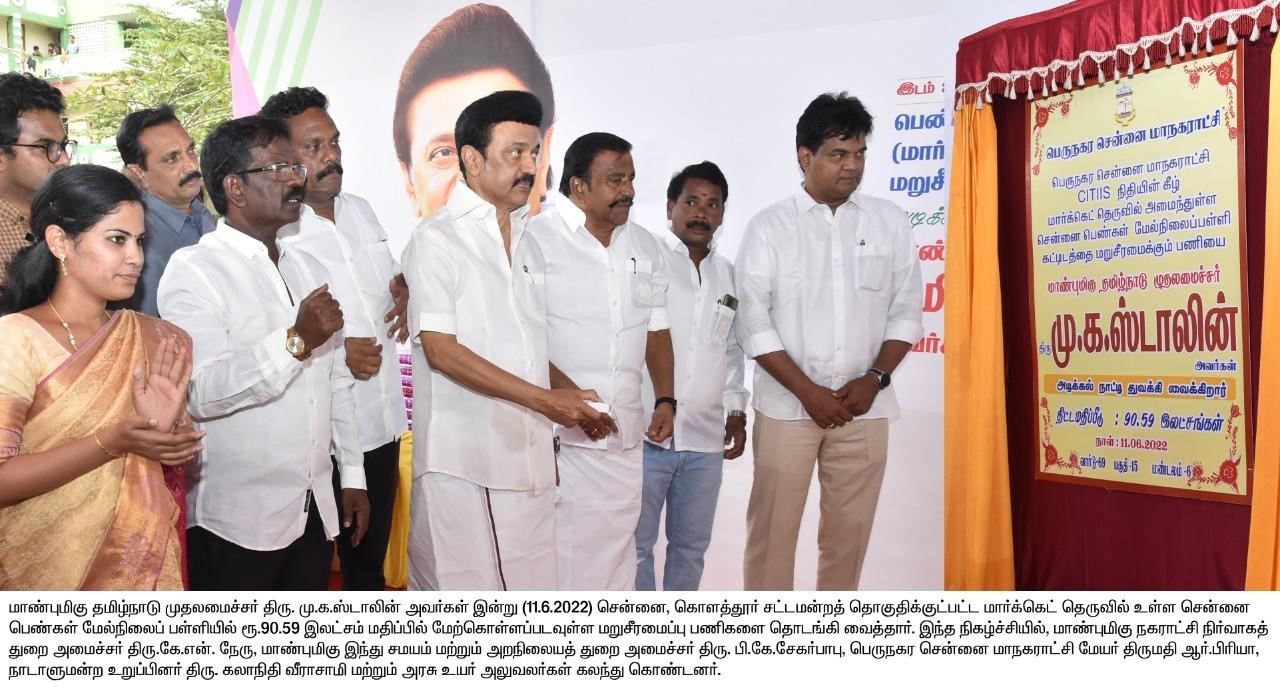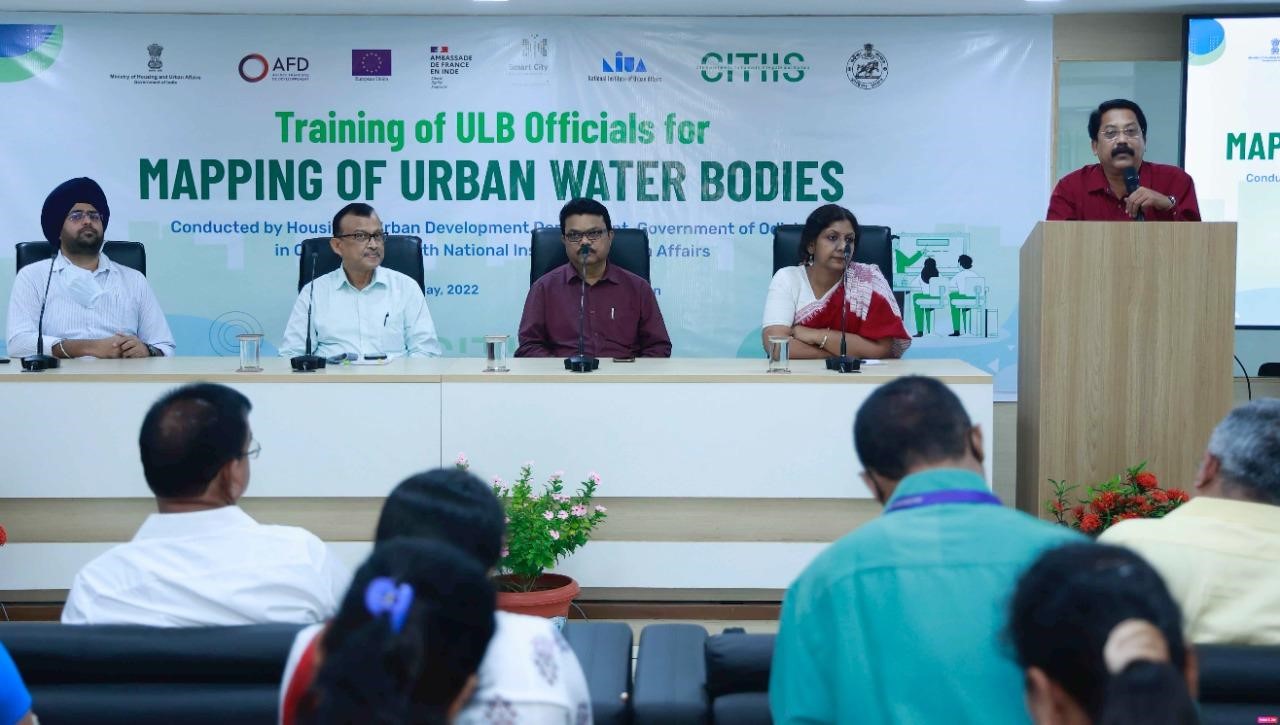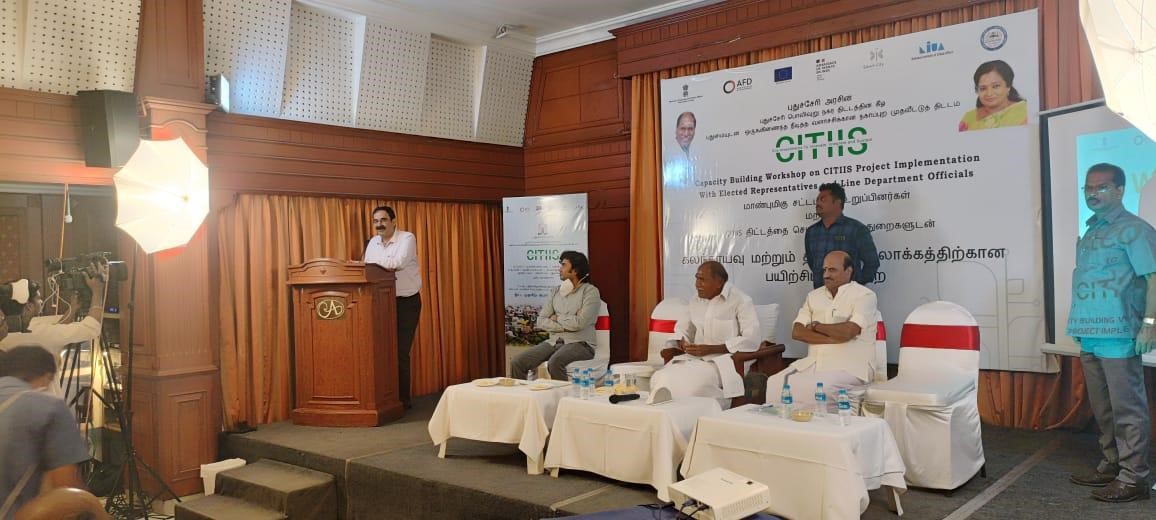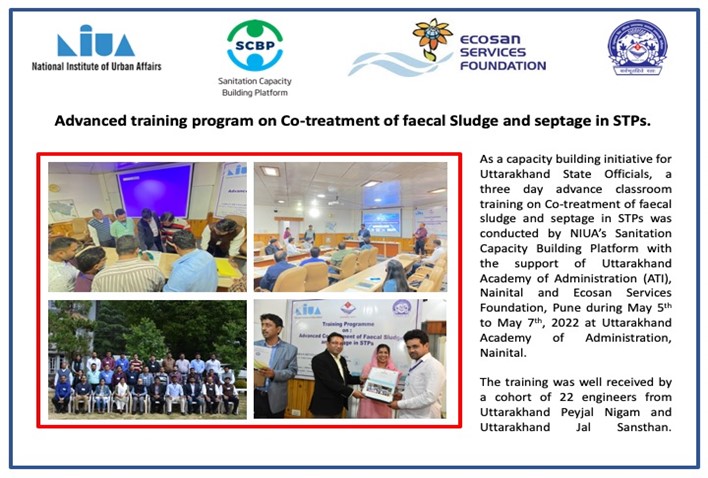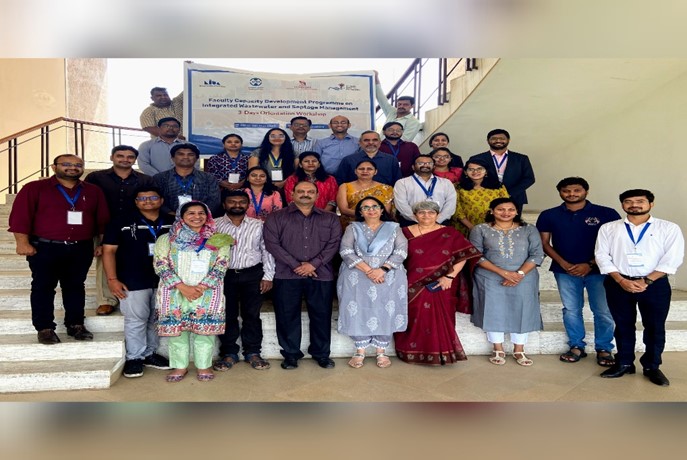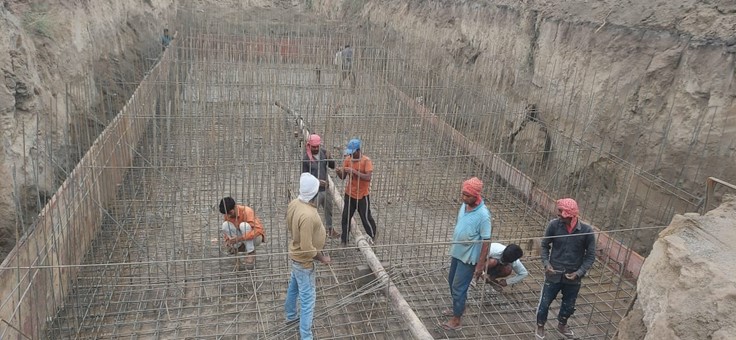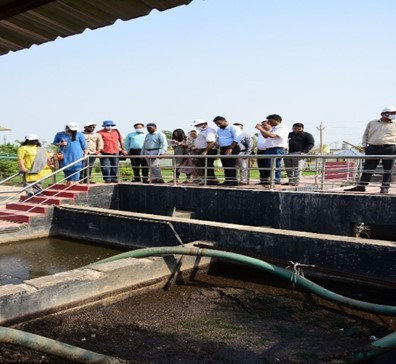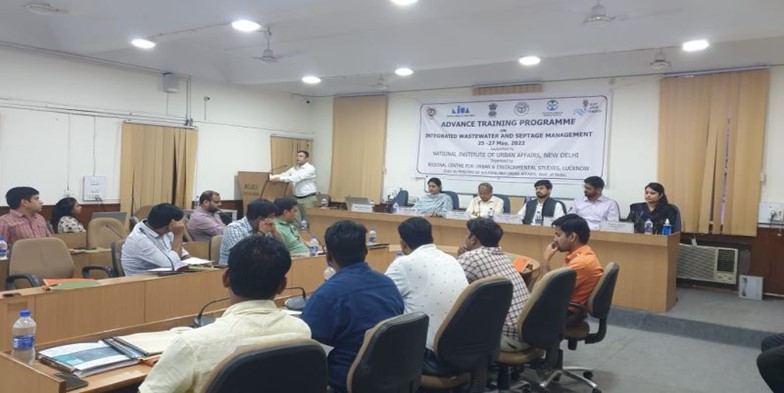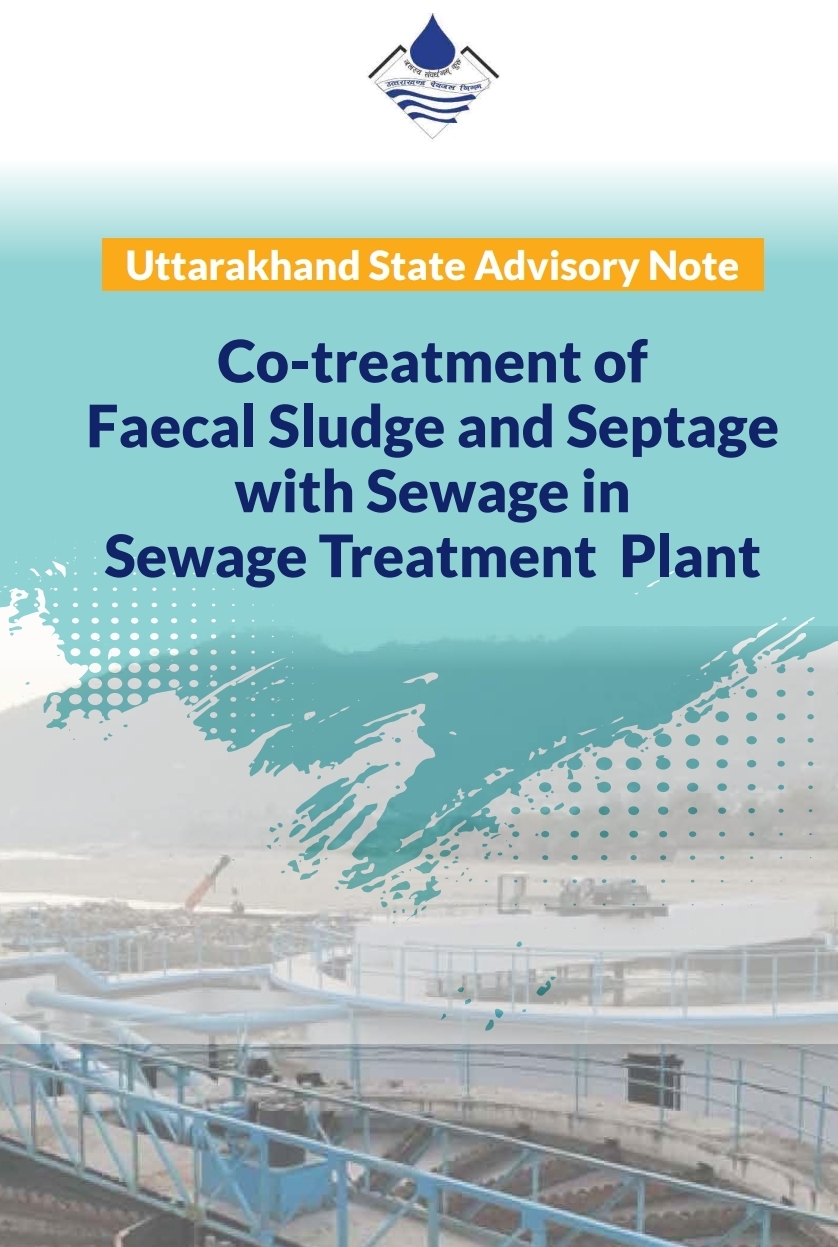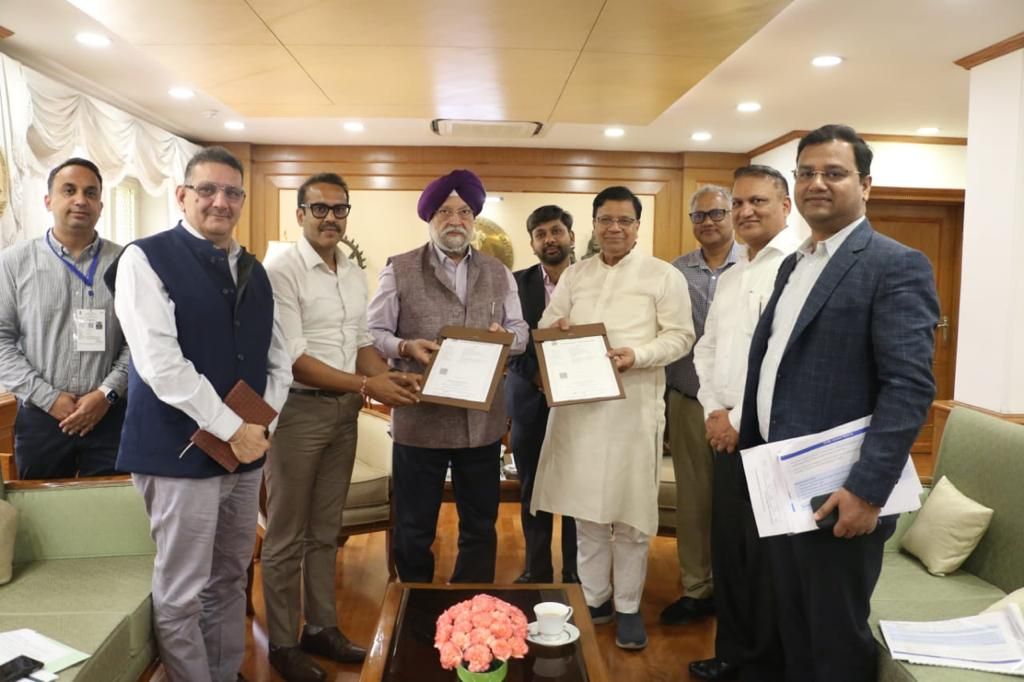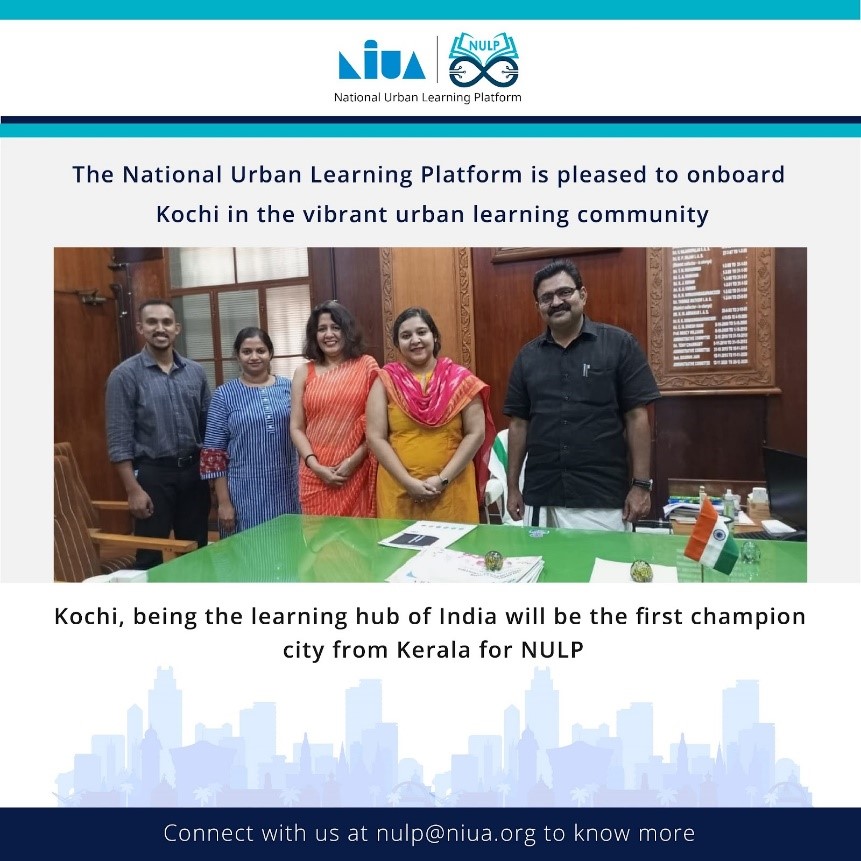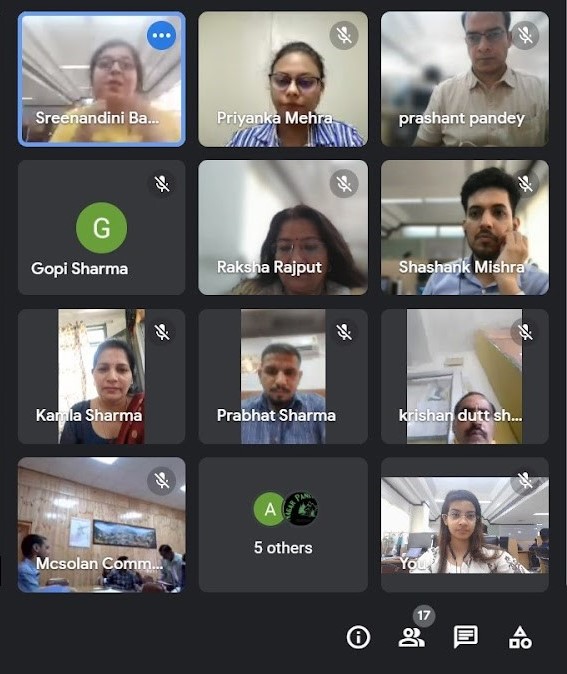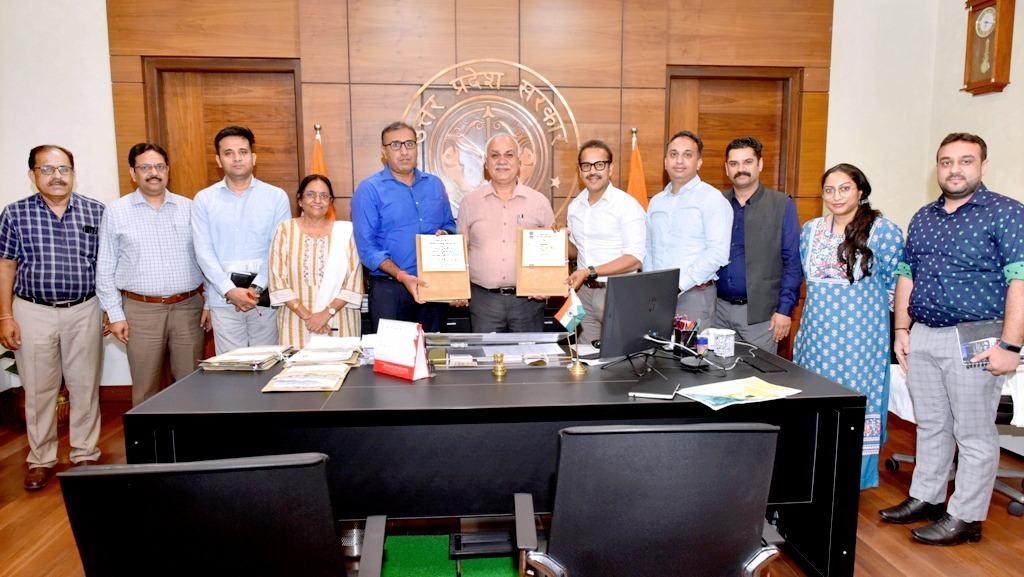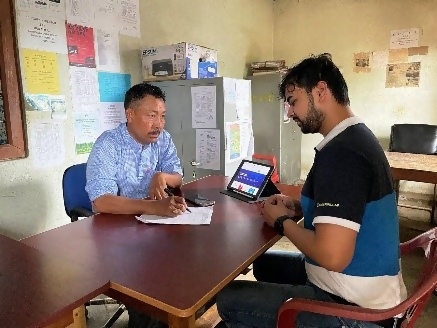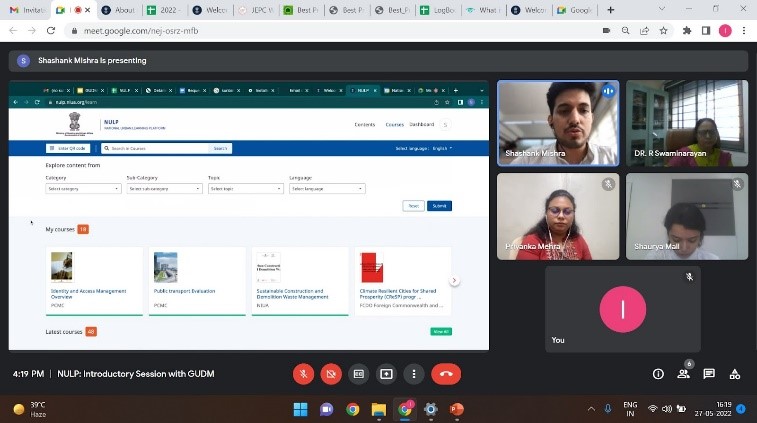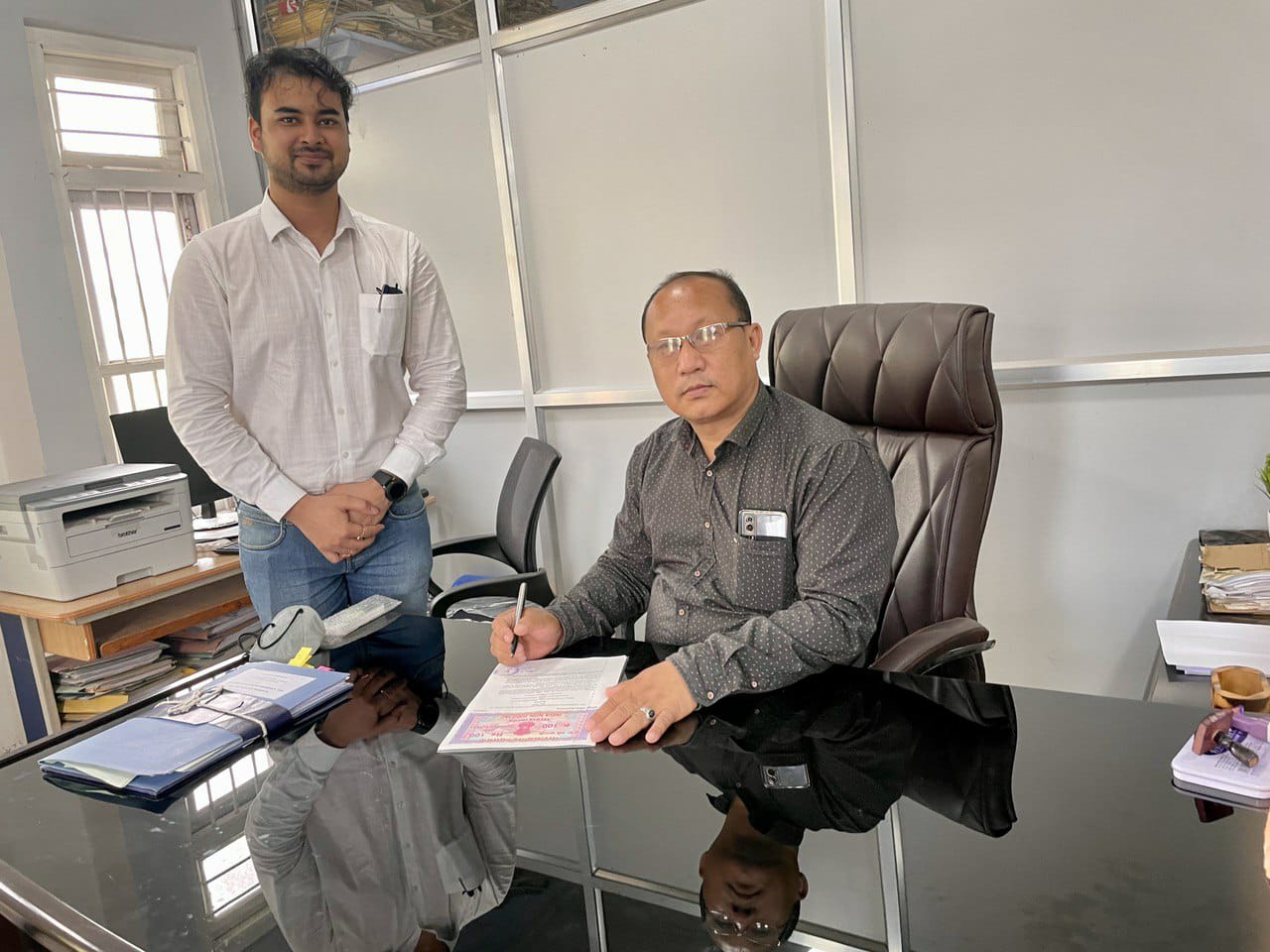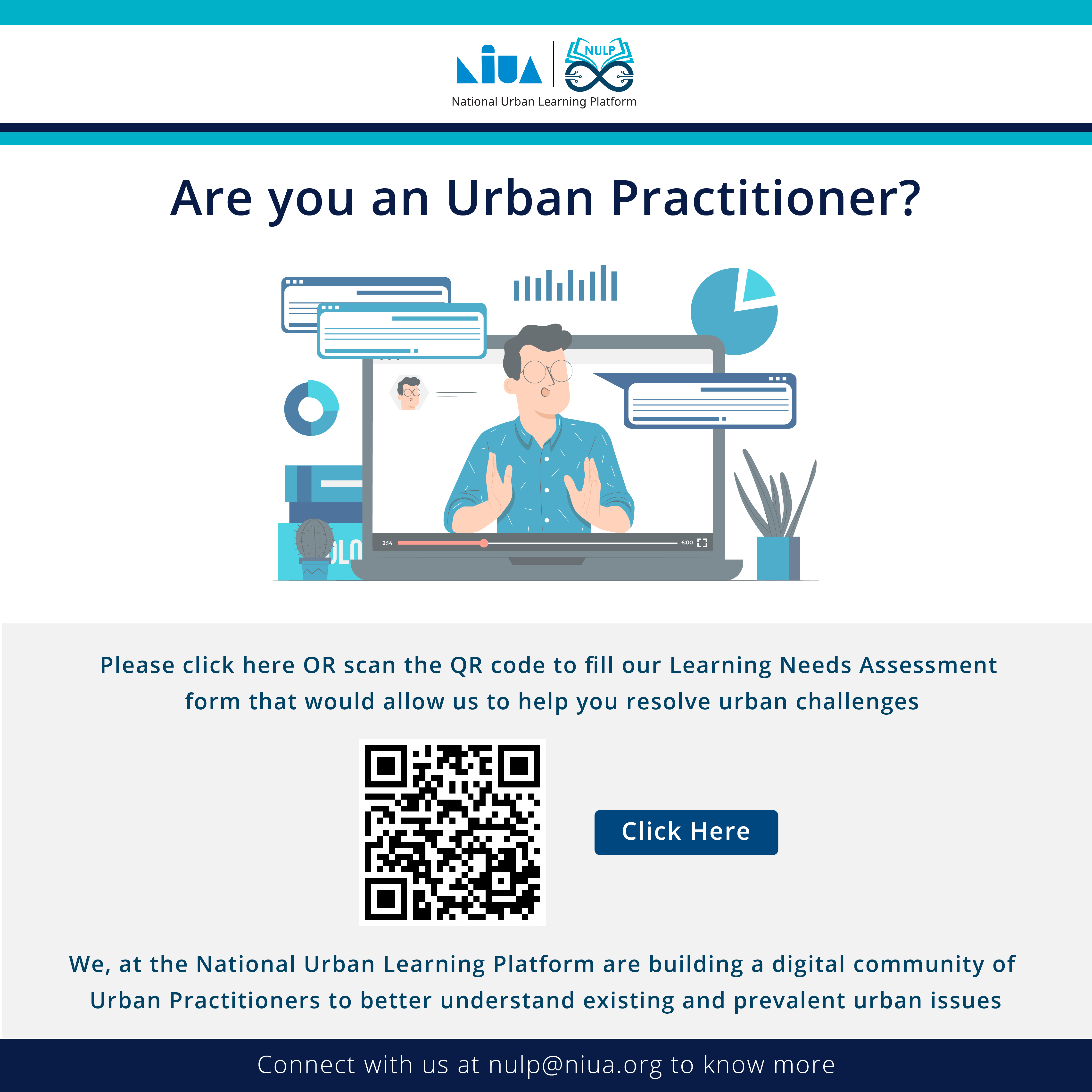
Issue - 2
May-June 2022
Monthly
Creating the next generation of Climate Leaders: LCCM
Shri Hardeep Singh Puri, Union Minister for Housing and Urban Affairs, launched the Leaders in Climate Change Management (LCCM) programme which marked a milestone in India’s journey towards fulfilling its climate commitments and achieving a future with sustainable cities. The programme aims to build 5,000 climate leaders over the next five years through a four-phased practice-based learning approach.
Designed jointly by NIUA, World Resources Institute India (WRI), the United Nations Environment Program (UNEP), and the Indian School of Business (ISB) with the support of the Smart Cities Mission, the programme was launched on 6 June 2022. LCCM envisions building capacities of 5,000 professionals, including mid-to junior-level government officials and frontline workers, and preparing them to champion climate change adaptation and mitigation solutions. Mysuru’s Administrative Training Institute became the first delivery partner to facilitate LCCM’s face-to-face learning modules. An MoU was signed by NIUA, WRI and the Administrative Training Institute (ATI), Mysuru in this regard. Click here for more details.
The event also saw the launch of:-
- The Climate Data Observatory 2.0 website,
- A book on 75 exemplary public spaces in India,
- The Urban Outcomes Framework 2022 – Data Collection Portal,
- The Citizen Engagement for Urban Transport Compendium.
A panel discussion on ‘Capacities for Climate Leadership in Indian Cities’ was also held on the occasion.
Training Programme: 'Managing Urban Rivers: From Planning to Practice' in Lucknow
Water and Environment
A training programme under the aegis of the River Cities Alliance was held between 5-7 May 2022, in Lucknow on ‘Managing Urban Rivers: From Planning to Practice’. Shri Durga Shankar Mishra, Chief Secretary, Govt. of UP gave a special address to all participants, followed by a motivational speech from Shri G. Asok, Director General, NMCG. The participants included senior decision-makers such as the Assistant Municipal Commissioner, General Managers, Additional Municipal Commissioners as well as technical officials including engineers, environment officers, project managers, and sector experts.
The participating cities were- Ayodhya, Bhubaneshwar, Chennai, Dehradun, Farrukhabad, Haridwar, Hooghly-Chinsurah, Howrah, Jangipur, Kanpur, Lucknow, Mathura-Vrindavan, Pune, Rajmahal, Rishikesh, Srinagar, Varanasi and Vijaywada.
Student Thesis Competition: Writeshop
Water and Environment
NIUA in association with the National Mission for Clean Ganga (NMCG), hosted a sponsored thesis competition on ‘Re-imagining Urban Rivers’ to achieve the sensitization & capacity-building of students for river-sensitive planning and development. In season 2 of the competition, twenty students across the country are being supported through mentorship and financial assistance.
An in-person writeshop was organised with these students from May 19 to 21, 2022 at the India Habitat Centre, New Delhi, where they discussed their work with the mentors from NIUA and NMCG. The students also displayed their creative skills by translating their ideas of river cities into models encouraging them to think beyond their curriculum.
'Training of Trainers' Workshop conducted by team SCIAP
Sustainable Cities Integrated Approach Pilot (SCIAP)
The Resources and Waste Team at NIUA under the Sustainable Cities Integrated Approach Pilot (SCIAP) project organised a ‘Training of Trainers Workshop’ (ToT) on 13 May 2022, based on the training modules developed for capacity building of ground functionaries. The SCIAP project in India is being anchored by the United Nations Industrial Development Organization. Three training modules and one handbook have been developed based on the findings of the Training and Assistance Needs Analysis (TANA), which was conducted in the five project cities (Bhopal, Jaipur, Guntur, Vijayawada and Mysuru).
Speaking at the workshop, Hitesh Vaidya, Director NIUA said, “Conversion of knowledge into application is crucial so that people working on the ground can utilize it. Moving forward, the larger goal is to scale-up and reach all 4400 ULBs of the country. Creating an urban ecosystem through partnerships is a fundamental aspect of that endeavour.”
Capacity Building Workshops for Ground Functionaries
Sustainable Cities Integrated Approach Pilot (SCIAP)
Following the ToT workshop, the training partners are carrying out capacity-building workshops for ground functionaries in the 5 project cities. The objective of these workshops is to train the ground functionaries regarding various aspects of social security, leadership and responsibility, and occupational health and safety, as outlined in the training modules.
In addition to the ToT modules, a handbook for Social Security Provisions and Schemes has also been developed. It is meant to be used by the ground functionaries and is currently available in Hindi and English. It will also be translated to Kannada and Telegu.
The first city to roll out the training workshop is Vijayawada Municipal Corporation, where workshops were held from 14 to 16 June.
• Participants included sanitation workers such as safai karamchari, DWCC/MRF workers, FSTP (drainage workers), and workers from the water supply department.
• Gender balance was ensured while seeking nominations of participants.
SCIAP project meetings and workshops: UNIDO India Mission
Sustainable Cities Integrated Approach Pilot (SCIAP)
NIUA hosted the United Nations Industrial Development Organization (UNIDO) team’s India Mission for the SCIAP project between 14-15 June. Project meetings and workshops were held, including one-on-one meetings with City Commissioners and relevant city officers to discuss the project activities, along with City representatives, UNIDO, UN Habitat & NIUA.
The following events took place:
• Overview of activities completed by UN Habitat in each city and followed by a discussion with City Officers for any additional support required from cities
• Capacity building and training activities undertaken by NIUA and discussion with city officers
• Workshop on 'Climate resilient spatial strategies to address urban priorities'
• National Workshop on 'Municipal Finance'
Contemplating Urban Precarity in Post COVID Cities
Sustainable, Healthy and learning cities and Neighbourhood
NIUA in partnership with the University of Wolverhampton and Urban Studies Foundation, United Kingdom organised a one-day Urban Thinkers Lab on Contemplating Urban Precarity in Post COVID Cities on May 13, 2022 in New Delhi.
The event deliberated on rethinking cities and urban policy responses in the post COVID-19 world through the lens of precarity. Shri Sanjay Kumar, Additional Secretary, Ministry of Housing and Urban Affairs delivered the Keynote Address. Two Special Addresses were delivered by Dr. Mukesh Kumar, Scientist and Head, International Health Division, Indian Council of Medical Research, MoHFW and Ms. Hyun Hee Ban, Chief, Social Policy, Monitoring & Evaluation, UNICEF. Shri G. Mathi Vathanan, Principal Secretary, Housing and Urban Development Department, Government of Odisha also deliberated on initiatives taken by the state during COVID-19.
Inclusive Cities Centre (ICC)
National Conclave on Gender & Disability Inclusion in Indian Cities
Inclusive Cities Centre (ICC)
The National Institute of Urban Affairs, under its Building Accessible, Safe and Inclusive Indian Cities (BASIIC) Programme, organised a ‘National Conclave on Gender and Disability Inclusion', a three-day (April 28-30) consultation, workshop and training program. The event was graced by Ms Lakshmi Puri, Former Assistant Secretary-General at United Nations, and former Deputy Executive Director of UN Women as the keynote speaker. The dignitaries also included Mr Shombi Sharp, UN Resident Coordinator in India and Mr Shantanu Mitra, Head, Infrastructure & Urban Development, British High and Mr Hitesh Vaidya, Director, NIUA.
Multiple panel discussions engaged experts from the disability welfare, policy and administration, architecture and urban sectors. The conclave included a two-day training and capacity-building program, focused on awareness creation among city agencies on universal accessibility in built environments. This included simulation exercises and field visits to the India Habitat Centre and the Dilli Haat INA Metro Station. The participants included ULB officials, persons from civil society organisations, NGOs and educational institutes such as IIT-Roorkee, IIT-Bombay, IIT-Kharagpur, IIT-Guwahati and IIT-Delhi.
International Seminar: Youth in Action for creating Inclusive Cities
Inclusive Cities Centre (ICC)
The International Center for Research and Policy on Childhood in association with the Pontifical Catholic University of Rio de Janeiro (CIESPI/PUC-Rio) organised an international seminar as an outcome of the project ‘Shaping Youth Future: Livelihood Options in Creating Inclusive City.’ The project has been undertaken by the Inclusive-Cities Centre (ICC), NIUA, in partnership with the University of Edinburgh, International Centre for Research and Policy on Childhood (CIESPI), Youth for Unity and Voluntary Action (YUVA) and Fields of View (FoV). It aims to identify the livelihood options for youth in cities of India and Brazil to promote the rights of young people.
The seminar took place between 30 May-1 June 2022 to share and discuss the research findings of both countries. Subject experts from neighbouring countries also participated in the discussions and reflected on the learnings presented. Apart from the presentations and discussions, all the attendees participated in the interactive ‘City Game’, facilitated by Fields of View to elicit the preferences of people when it comes to urban form.
Smart Solutions Challenge
Inclusive Cities Centre (ICC)
The BASIIC program in collaboration with the United Nations and Niti Aayog is organising the ‘Smart Solutions Challenge and Inclusive Cities Awards.’ This initiative seeks to crowd-source innovative solutions to align with the New Urban Agenda and promulgate the principle of ‘Leave No One Behind’ (LNOB) to achieve the Sustainable Development Goal 11, and Target 11.7 in particular.
The ‘Smart Solutions Challenge’ is designed to identify smart innovative solutions which can be easily adapted or replicated, and potential ideas or prototypes which can be incubated by the cities. The ‘Inclusive Cities Awards’ is designed to identify innovative solutions, initiatives, and programmes already implemented within cities in India that are addressing the accessibility and inclusion needs of the target population. The awards seek to encourage such innovations within Indian cities by acknowledging and recognizing their efforts for creating inclusive and accessible urban spaces for all.
Lecture Series
Inclusive Cities Centre (ICC)
Prof Amita Bhide from the Tata Institute of Social Sciences, in the introductory lecture, looked at expanding on equity and inclusive development and the lack thereof in Indian cities. The lecture focuses on the principles of inclusion namely, equity, access, opportunity and rights in the sustainable development framework. Prof Bhide touched upon a combination of research with first-hand empirical material collected in cities and urban areas.
Lecture 2: Participatory planning, for social inclusion and sustainable urban future:
The second lecture in the series, with Dr Kaustuv Bandyopadyay, Director at Participatory Research in Asia (PRIA), looked at participatory planning and social inclusion. He elaborated on the combination of research with first-hand empirical material collected in cities and urban areas. The lecture offered concepts of participatory planning for social inclusion and a sustainable urban future.
Training of Government Officials on ITCN
Inclusive Cities Centre (ICC)
Infant, Toddler and Caregiver-Friendly Neighbourhoods (ITCN) Capacity Building Programme collaborated with training agencies: KILA, Thrissur; RCUES, Lucknow; AIILSG, Mumbai; CGG, Nainital and ESCI Hyderabad, to deliver orientation level training to government officials. The orientation level course consisted of 4 modules:
- Covering topics related to ITC and their needs,
- ECD-related services to create ITC-friendly neighbourhoods,
- Assessment of existing policies and guidelines, and
- Importance of data and evidence-based approach in achieving ITC-friendly neighbourhoods and cities.
Around 240 government officials participated in the training programme. The follow-up operational and implementation level courses will be delivered in the coming months of 2022.
Workshop on Knowledge Sharing and Assessment for Orientation Training
Inclusive Cities Centre (ICC)
The ITCN Capacity Building Programme organised a knowledge-sharing workshop on the completion of the orientation-level training of government officials on 6 May 2022.
The workshop provided an open platform to discuss the feedback from ULB officials who participated in the orientation-level training on the relevance of the training content for the inclusion of young children and their caregivers in city planning processes. It was attended by Bernard van Leer Foundation representatives, trained government officials, trainers from 5 training agencies and key experts from ‘The training of Trainers agency’ (CRDF).
Let's Talk Inclusion
Inclusive Cities Centre (ICC)
Episode 2: People-Centred Heritage Conservation Initiatives for more Equitable and Inclusive Growth
Cultural heritage and inner-city core areas play the critical role of a catalyst, where they not only define the identity of the residing communities and businesses but also provide livelihood opportunities and scope for economic development. In juxtaposition, these areas are also at risk of degeneration and gentrification due to market exploitation, mass tourism and urbanisation.
In the second episode of ‘Let’s Talk Inclusion’, Aishwarya Tipnis, co-founder of Jugaadopolis, discusses people-centred heritage management initiatives for more equitable and inclusive growth. She also answers pertinent questions such as 'who defines heritage' and 'how communities connect and view the heritage precincts that exist within'.
Episode 3: City Governance and Planning to Build ‘Young Children and Family-Friendly Cities’
Children, who constitute a large and integral part of a city, are often ignored in the city planning process for many reasons. It is well established that children’s interaction with their immediate environment largely influences their learning and development.
In the third episode of ‘Let’s Talk Inclusion’, Ms Rushda Majeed, India Representative of Bernard van Leer Foundation speaks on the city planning and governance practices to build 'Young Child and Family-Friendly Cities.' The discussion highlights the key planning and design features of young children and family-friendly cities. It looks into policy and institutional reforms that are required to make child-friendly cities.
Blog on 'Improving City Facilities for People on the Spectrum'
Inclusive Cities Centre (ICC)
Children with Autism Spectrum Disorder (ASD), their families and their caregivers face various attitudinal, physical and social barriers. This often hampers their access to education, employment opportunities, healthcare services, and finding an equal place in society. The blog emphasizes the importance of an autism-friendly approach for corroborating their access to these basic facilities. The approach suggests making provisions for children with autism in our built environments, policies, schemes and administration processes across all sectors.
Blog on 'Her/She in Indian Urban Spaces'
Inclusive Cities Centre (ICC)
The blog brings to light the multiple barriers women face while accessing urban spaces and all their core facilities. It highlights the problems related to public and para-transit services, hygiene and sanitation facilities and recreational spaces, and the need to make these spaces more gender-neutral and usable by all. Along with highlighting the problems, it showcases some of the best practices in urban areas that are making use of these services.
Climate Centre for Cities (C-Cube)
Smart Cities: Smart Urbanisation event at Surat
Climate Centre for Cities
Climate Cafe was a pavilion organised by the Climate Centre for Cities at the Smart Cities, Smart Urbanisation Conference (SCSU) 2022 in Surat between 18-20 April 2022. The pavilion housed events, panel discussions and open houses. It acted as a platform for city officials to learn, discuss, visualize and share their good practices and learnings, and understand how to communicate their impact better to achieve scale and sustainability. The Cafe applied a climate lens to the SCSU conference. It embedded awareness among participants to pave the way for India’s forward-looking, climate-proof, inclusive, and integrated urban transformation.
C-Cube has also developed a microsite titled 'Climate Cafe' to digitally navigate climate practitioners, partners and citizens through activities and events which were organised at the C-Cube pavilion at SCSU, Surat.
World Environment Day Celebration
Climate Centre for Cities
Climate Data observatory (CDoT) 2.0 and the results of the National Photography Competition on Climate Change were launched by Hon'ble Minister, Ministry of Housing and Urban Affairs, Shri Hardeep Singh Puri on the occasion of World Environment Day.
The CDoT 2.0 is an online platform designed to empower city officials, policymakers, climate champions, practitioners, and other stakeholders with climate-relevant data, visualizations, and resources they need to gather insights on the city level and national progress on climate actions. The observatory aims to create a data ecosystem for supporting informed decision-making in addressing climate challenges in cities.
The National Photography Competition on Climate Change was organised by the Ministry of Housing and Urban Affairs and C-Cube at the National Institute of Urban Affairs (NIUA) as a pre-event activity for Smart Cities: Smart Urbanization at Surat. The National Photography Competition features the most powerful, provocative, and poignant images from around the country, which intends to create awareness about the challenges and solutions associated with Urban Climate Change and Sustainability. Out of 1200 submissions, 16 winning entries were able to narrate how Indian cities are trying to implement climate actions.
'Sciences Po' Delegation Studies CITIIS Waterfront Projects
City Investments to Innovate, Integrate and Sustain (CITIIS)
A five-member delegation from 'Sciences Po', Paris visited three CITIIS project sites – in Surat, Agartala and Hubballi-Dharwad – in May as part of a study on waterfront projects in urban areas.
The delegation, consisting of five graduate students from multidisciplinary backgrounds, undertook field visits and met with the CITIIS project teams and stakeholders in the three selected cities to gain in-depth understanding of the projects. Their learnings from the two-week study tour are being used in the development of a framework for ecological transition through urban waterfront projects in emerging economies. This study forms their ‘capstone’ project, which are applied research projects organised by the Sciences Po Urban School, and the framework prepared will guide similar urban projects in the future.
‘Green Corridor’ Pilot Phase Inaugurated in Hubballi
City Investments to Innovate, Integrate and Sustain (CITIIS)
The ‘Green Mobility Corridor’ pilot phase in Hubballi-Dharwad, a project under the CITIIS programme, was completed and inaugurated by Union Parliamentary Affairs Minister Mr Pralhad Joshi and MLA and former Karnataka Chief Minister Mr Jagadish Shettar.
The development of the green corridor is creating better pathways for pedestrians and non-motorised transport and finding solutions for wastewater treatment and its release into the Unkal Nala with the larger aim of converting the area into a vibrant and accessible public open space.
The Nala runs for a total length of approximately 9.25 km, 5 km of which is covered under the CITIIS project. A stretch of 640 m was completed during the pilot phase, while the remaining 4.3 km will be developed in the project’s second phase.
Tamil Nadu CM Inaugurates Works Under CITIIS in Chennai
City Investments to Innovate, Integrate and Sustain (CITIIS)
The Hon'ble Chief Minister of Tamil Nadu, Mr M.K Stalin, inaugurated the renovation work of the Chennai Girls' High School at Market Street, one of the schools under the CITIIS project in Chennai.
Deputy Commissioner (Education) of the Greater Chennai Corporation, Ms D. Sneha I.A.S, presented on the works that will be taken up in the school under CITIIS, at a cost of Rs. 90.59 lakhs. GCC and Chennai Smart City Ltd. are implementing “Model & Smart Corporation Schools”, a project under the CITIIS programme that seeks to holistically transform schools across Chennai in terms of their physical and digital infrastructure, teacher training, facilities for sports and extra-curriculars, and community partnerships.
Capacity Building Workshops for Odisha Officials Conducted
City Investments to Innovate, Integrate and Sustain (CITIIS)
Rapid urbanisation is leading to a loss of urban wetlands and water bodies, and urgent measures are required to preserve and rejuvenate them. With these concerns in mind, a series of workshops were conducted in Bhubaneswar to train officials from Urban Local Bodies in Odisha in the mapping of water bodies in cities.
The workshops were conducted in collaboration with the Housing and Urban Development Department of the Government of Odisha (H&UDD), as a part of the CITIIS programme. CITIIS is dedicated to supporting and strengthening municipal institutions in Odisha, its State partner, so they are better equipped to fulfill their vision of rejuvenating all urban water bodies across the state systematically and sustainably.
Close to 90 officials across multiple ULBs participated in the capacity-building workshops, including training sessions facilitated by high-level experts and field visits to water bodies in Bhubaneswar. H&UDD has shortlisted 19 water bodies for the pilot phase of this programme – 16 from the Special City Water Action Plan under AMRUT 2.0 (CWAP) and 3 from the Bhubaneswar Municipal Corporation.
Puducherry CM Attends CITIIS Stakeholder Workshop
City Investments to Innovate, Integrate and Sustain (CITIIS)
A consultation workshop for the CITIIS project in Puducherry was held in May. It was attended by 75 participants, including the hon’ble Chief Minister, the Chief Secretary, Govt. of Puducherry, and the Hon'ble Minister for Works.
Including stakeholders in the decision-making process and following a participatory approach is vital to CITIIS, and this strength of the program was highlighted through the active participation of elected representatives and project implementation agencies. The participants shared suggestions and assured their full support for implementing the CITIIS project. The project in Puducherry aims to provide wider access to affordable housing, upgrade public spaces, improve the socio-economic conditions of people in low-income settlements, and promote citizen participation.
Training on Co-treatment of Septage at STPs in Uttarakhand
Sanitation Capacity Building Platform (SCBP)
Sanitation Capacity Building Platform (SCBP) at NIUA, with ATI Nainital and Ecosan Services Foundation, Pune, conducted a training on “Co-treatment of Septage at STPs” on 5-7 May 2022. Around 30 government engineers from Ganga towns and other cities with STPs in Uttarakhand were trained.
Faculty Capacity Development Programme on IWSM in Maharashtra
Sanitation Capacity Building Platform (SCBP)
SCBP at NIUA, in collaboration with Symbiosis International University, organised a Faculty Capacity Development Programme on ‘Integrated Wastewater and Septage Management (IWSM)’ for the universities of the Maharashtra region on 18-20 May 2022. The workshop has been curated to raise awareness and knowledge in academia about the concept of IWSM and to spearhead the education, and research on non-sewered sanitation including FSSM.
23 faculty members from different universities and streams; environment technology, management, economics, and geography participated actively in activities and presented different modalities through which NSS could be introduced and integrated into the curriculum.
Co-treatment of Faecal Sludge and Septage at existing STPs in Uttarakhand
Sanitation Capacity Building Platform (SCBP)
The Executive Committee of the National Mission for Clean Ganga (NMCG) has sanctioned funds for the implementation of ‘Co-treatment of FSS at existing STPs’ in 4 cities of Uttarakhand – Haridwar, Rishikesh, Srinagar and Devprayag. SCBP is offering technical support to these cities for FSSM.
Construction of 125 KLD FSTP in Rudrapur
Sanitation Capacity Building Platform (SCBP)
The construction work of the upcoming 125 Kilo Litres per Day (KLD) Faecal Sludge and Treatment Plants (FSTP) in Rudrapur, Udham Singh Nagar district in Uttarakhand has commenced.
The project is funded under the AMRUT scheme.
Exposure visit of senior officials to Bhubaneswar and Puri, Odisha
Sanitation Capacity Building Platform (SCBP)
SCBP with the support of Odisha Water Academy (OWA), organised an exposure visit to Bhubaneswar and Puri, Odisha between 26-27 April 2022 to build capacity of senior officials of the Urban Development Directorate, Uttarakhand Peyjal Nigam, Uttarakhand Jal Sansthan and the Uttarakhand Academy of Administration, Government of Uttarakhand.
Constitution of Septage Management Cell
Sanitation Capacity Building Platform (SCBP)
92 Urban Local Bodies out of 100 in Uttarakhand have constituted the Septage Management Cells (SMC) per the Uttarakhand State Septage Management Protocol 2017. They have also processed the constitution of septage management by-laws. Out of these 92 ULBs, 17 ULBs have gazetted septage management by-laws and others are under process.
Training of ULB officials on Integrated Wastewater and Septage Management
Sanitation Capacity Building Platform (SCBP)
SCBP at NIUA in collaboration with the Regional Centre For Urban & Environmental Studies (RCUES) Lucknow, and Ecosan Services Foundation, India (ESF), Pune conducted a 3-day training program on "Integrated Wastewater and Septage Management” for Urban Local Bodies, UP Jal Nigam, Jal Sansthan, Awas Vikas Parishad and Mission Unit of SBM of Uttar Pradesh State to build their capacities on planning, implementation, and management of wastewater treatment solutions. More than 25 participants successfully completed this training programme.
Co-treatment of Faecal sludge and septage with sewage at STPs: State Advisory Note released
Sanitation Capacity Building Platform (SCBP)
The ‘State Advisory note on Co-treatment of Faecal sludge and septage with sewage at STPs’ has been approved and endorsed by Uttarakhand Peyjal Nigam, UDD and Uttarakhand Jal Sansthan, Government of Uttarakhand.
Uttarakhand becomes the first state in India to release a co-treatment advisory post-launch of the Swachh Bharat Mission guidelines.
Centre for Digital Governance (CDG)
UPYOG & Standards
Centre for Digital Governance
With the aim to provide citizen-centric municipal e-governance services, NIUA will be working with the Government of Haryana for implementing NUDM*. It was formalised through the signing of a tripartite agreement in the presence of Shri Hardeep Singh Puri, Union Minister, Housing and Urban Affairs.
The team will work with the Government of Haryana to supplement the already existing online municipal services in the state.
* NUDM is a digital transformation platform for our cities that aims to create a digital ecosystem to support accessible and effective citizen-centric urban governance. To learn more about NUDM, click here.
Team NULP signs the first state MoU with Haryana for collaborative learning
National Urban Learning Platform (NULP)
NULP signed a Memorandum of Understanding with Haryana on 8 June 2022, marking the first state-wide engagement for NULP. With this milestone, NULP is actively engaging with each of the 93 ULBs in Haryana to share their experiences on current & emerging urban requirements.
As the first champion state on NULP, Haryana will lay the foundation for establishing a culture of peer-to-peer learning, and explore the vast range of e-learning solutions available in the urban domain.
Engagement with Kochi Municipal Corporation, Kerala
National Urban Learning Platform (NULP)
NULP has onboarded Kochi in the urban learning ecosystem. An onboarding session was held on 3 June at Kochi, in the presence of Mr M Anil Kumar, Mayor - Kochi, and Ms Simi S, Project Manager - Centre for Heritage, Environment and Development, Kochi.
NULP launched a comprehensive Learning Assessment tool on 31 May for the Urban Practitioners. NULP aims to identify urban issues and customise solutions for cities through this endeavour.
Interactive Session with ULBs in Himachal Pradesh
National Urban Learning Platform (NULP)
The NULP held an online onboarding session for the ULBs of Himachal Pradesh on 18 May, 2022. Assistant Engineers & Junior Engineers from Solan, Parwanoo, Baddi, Nalagarh, Arki and Kandaghat participated in the session.
The ULBs showed interest in the platform and shared current urban challenges in their cities. Following this session with the officials, NULP will work on capacity building and peer-to-peer learning in Himachal Pradesh.
NUDM Workshop in Kerala
Centre for Digital Governance
The NUDM team visited Kerala where a two-day workshop was held to introduce the Mission’s objectives and instruments to the State IT Mission.
The workshop concluded with the signing of an MoU on 1 June 2022, bringing Kerala and its 93 ULBs in close engagement with the Mission.
Rajasthan leads the way in the West: NUDM Initiatives
Centre for Digital Governance
The NUDM team kicked off its formal engagement with the state government of Rajasthan with an MoU signed on 9 June 2022.
NIUA will work with the Local Self Government Department to implement the NUDM initiatives and enhance the urban services already in place for the citizens of Rajasthan.
NUDM engages with Karnataka State government
Centre for Digital Governance
Karnataka has been a trail-blazer in the delivery of municipal services online across its 314 ULBs.
NIUA has signed an MoU with the state regarding the implementation of NUDM on 13 June 2022 to accelerate service delivery.
Uttar Pradesh launches ambitious campaign to improve ease of living with NUDM
Centre for Digital Governance
The Uttar Pradesh state government has taken up the challenge of delivering municipal services online across its 750 ULBs in a matter of 90 days.
NIUA was invited to make a presentation to Shri Durga Shankar Mishra, Chief Secretary, Government of Uttar Pradesh on UPYOG - a national platform for the delivery of urban services online. NIUA signed a tripartite Memorandum of Understanding with MoHUA and the Government of UP on 31 May 2022.
Punjab NUDM engages with award-winning PMIDC
Centre for Digital Governance
The Mission is closely working with the Punjab Municipal Infrastructure Development Company (PMIDC) across 167 ULBs. Driving the initiative of delivery of most commonly used services, NIUA signed an agreement with the PMIDC on 16 June 2022.
Team CDG has also conducted workshops to invite comments and suggestions on the knowledge standards for Water & Sewerage, Trade Licenses, Public Grievance Redressal and Fire No-Objection-Certificate, key requirements for the nodal agency in Punjab.
Interaction with Kumbi Municipal Council, Manipur
National Urban Learning Platform (NULP)
The NULP was introduced to the Executive Officer in Kumbi Municipal Council, Mr M Inaobi Singh on 25 May 2022. He shared his insights on the learning needs of the states in the North-East, and described the value of capacity building for municipal service programmes.
NULP will be working with the Municipal Council of Manipur for skill enhancement of Council officials and sharing existing best practices from across the country.
Engagement with the Gujarat Development Mission
National Urban Learning Platform (NULP)
The Gujarat Urban Development Mission (GUDM) was introduced to NULP on 27 May 2022. The NULP team presented the platform to Dr Rajshree Swaminarayan - General Manager, Information, Education & Communication, and discussed the way forward for engagement with the ULBs of Gujarat.
The team will be working with GUDM to contribute to the community of urban practitioners and sharing of best practices.
MoU signed with Manipur
Centre for Digital Governance
The NUDM has been well-received in Manipur, which has begun work on implementing key service modules, such as property tax. 27 ULBs in Manipur will see the initiatives of NUDM implemented through this engagement.
An MoU was signed with MAHUD, Manipur on 27 May 2022.
NULP launches Nation-wide User Needs Assessment
National Urban Learning Platform (NULP)
The NULP launched a comprehensive Learning Assessment tool on 31 May 2022 for Urban Practitioners. Through this, the platform aims to identify urban issues and customize solutions for cities.
Recent Publications






